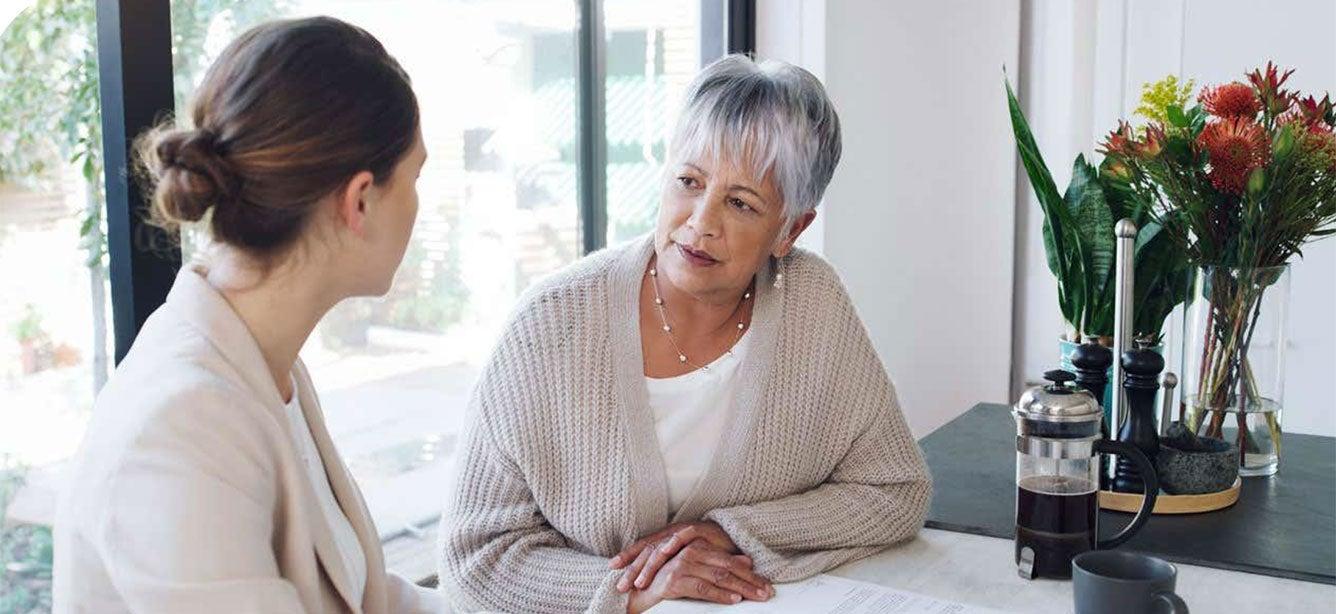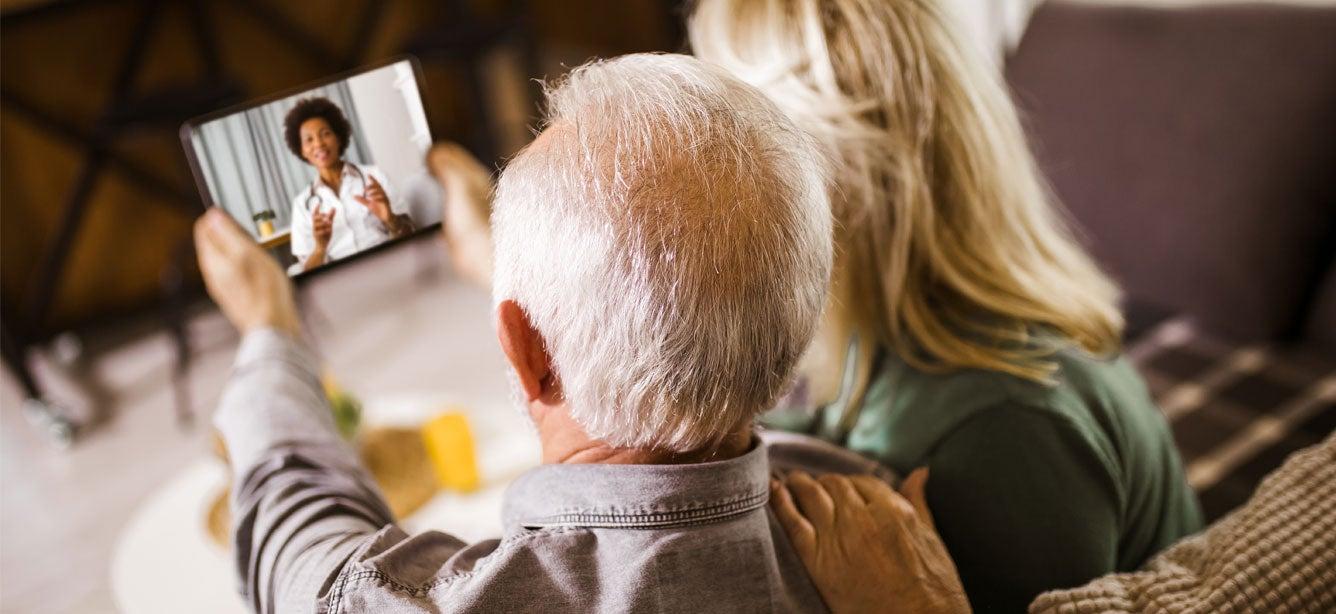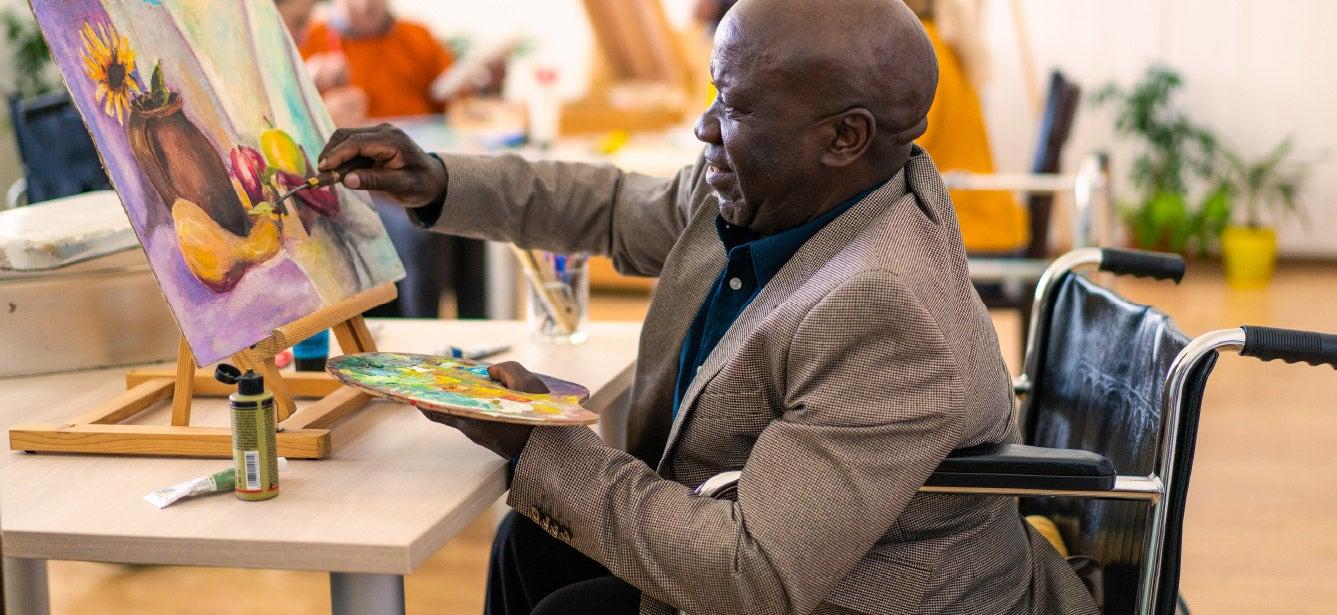
Related Topics
Among people 50 and older, 14.5% are living with a mental health issue such as an anxiety disorder, depression, or a substance use problem.1 Rising rates of social isolation and loneliness, the ongoing risk of suicide, as well as a 220% increase in the number of adults 55 and older seeking emergency room care for opioid misuse2 all point to why all of us must to step up to address the mental health needs of older Americans.
The call to action that emerged from NCOA's 5th Annual Older Adult Mental Health Awareness Day Symposium:
Each of us can make at least one connection in our community and develop partnerships to improve mental health services and support for older adults.
Why Jane Pauley wants us to stop using the word "stigma"
During a powerful conversation with NCOA President and CEO Ramsey Alwin to kick off the 2022 symposium, Jane Pauley shared her personal mental health story and urged audience members to persevere in finding the correct mental health treatment because treatment works.
Pauley, host of CBS Sunday Morning, was diagnosed with bipolar depression at age 50. As someone who has personally been helped by effective mental health treatment, she now speaks out to help more of us address mental health with hope, not fear.
Pauley also believes health professionals have an important role in helping families understand what they can and cannot do and helping patients understand families often don’t know how or have the skills to help.
She is passionate about how mental health is portrayed in the media and advocating for media to stop referring to people having “demons.” She also recommends we stop using the word “stigma” as it can be toxic and reinforces stereotypes.
How trauma-informed care can help older adults
One symposium session that examined trauma-informed care opened with a first-person account from a caregiver who highlighted the importance of understanding culture and experiences, which often are different across generations. She also noted that family members may not share the trauma they experienced in the past with their families, caregivers, or health care providers.
Some of that session's key points:
- Many older adults have experienced trauma, and the effects and impacts can evolve over time
- Trauma can be triggered by a broad range of circumstances and situations, including those that may be intended to help the individual
- Proven strategies can provide older adults with care that promotes safety and helps resolve trauma
Barriers to mental health care can be complex
The barriers that keep many older adults from accessing supportive mental health services include denial, lack of information or knowledge, personal financial imitations, limited state and federal funding, waiting lists, and biases. Yet overcomoning those barriers is key to improving older adult mental health. As one symposium session underscored:
- Access to mental health services can allow older adults to live independently and improve quality of life.
- There is a need for more mental health and substance use disorder providers that specialize in older adults. Collaboration between community and clinical settings can add capacity for screening and data-sharing.
- National resources are available to support health care providers and community-based organizations in caring for older adults with mental illness or substance use disorders.
Mental health is an increasing concern for older adults, who have been especially hard hit by social isolation and loneliness during the COVID-19 pandemic.
Watch recorded sessions and learn more about the free symposium, which was co-sponsored with the U.S. Administration for Community Living (ACL), the Health Resources and Services Administration (HRSA), and the Substance Abuse and Mental Health Services Administration (SAMHSA), and the E4 Center of Excellence for Behavioral Health Disparities in Aging, by visiting https://connect.ncoa.org/oamhad-home.
This project was supported, in part by grant number 90CSSG0048 from the U.S. Administration for Community Living, Department of Health and Human Services, Washington, D.C. 20201. Grantees undertaking projects under government sponsorship are encouraged to express freely their findings and conclusions. Points of view or opinions do not, therefore, necessarily represent official Administration for Community Living policy.
Sources
1. National Institute of Mental Health. Mental Illness. Found on the internet at https://www.nimh.nih.gov/health/statistics/mental-illness
2. Mason M, Soliman R, Kim HS, Post LA. Disparities by Sex and Race and Ethnicity in Death Rates Due to Opioid Overdose Among Adults 55 Years or Older, 1999 to 2019. JAMA Netw Open. 2022 Jan 4;5(1):e2142982. Found on the internet at https://www.ncbi.nlm.nih.gov/pmc/articles/PMC8753495/



